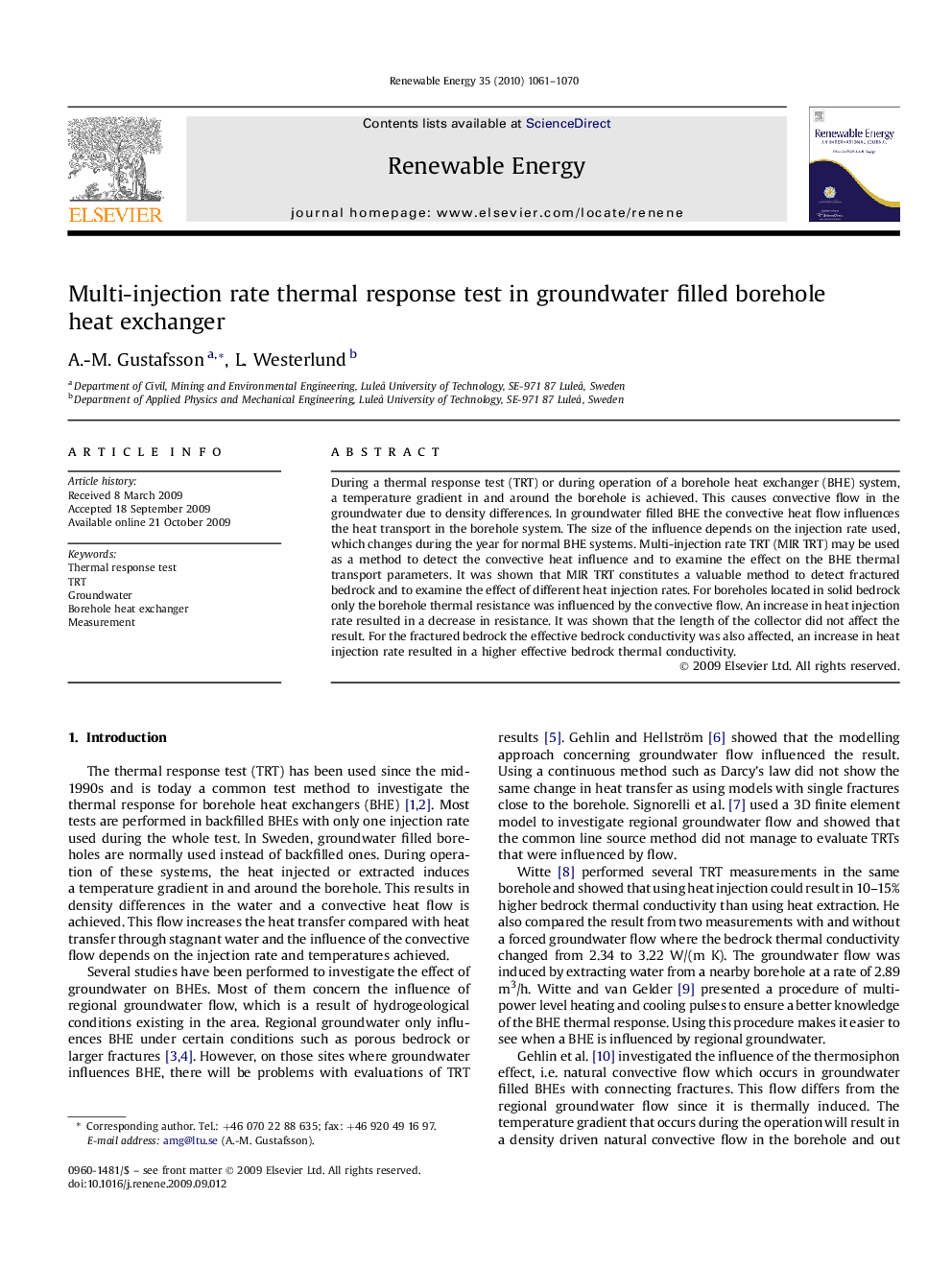| Article ID | Journal | Published Year | Pages | File Type |
|---|---|---|---|---|
| 301957 | Renewable Energy | 2010 | 10 Pages |
During a thermal response test (TRT) or during operation of a borehole heat exchanger (BHE) system, a temperature gradient in and around the borehole is achieved. This causes convective flow in the groundwater due to density differences. In groundwater filled BHE the convective heat flow influences the heat transport in the borehole system. The size of the influence depends on the injection rate used, which changes during the year for normal BHE systems. Multi-injection rate TRT (MIR TRT) may be used as a method to detect the convective heat influence and to examine the effect on the BHE thermal transport parameters. It was shown that MIR TRT constitutes a valuable method to detect fractured bedrock and to examine the effect of different heat injection rates. For boreholes located in solid bedrock only the borehole thermal resistance was influenced by the convective flow. An increase in heat injection rate resulted in a decrease in resistance. It was shown that the length of the collector did not affect the result. For the fractured bedrock the effective bedrock conductivity was also affected, an increase in heat injection rate resulted in a higher effective bedrock thermal conductivity.
